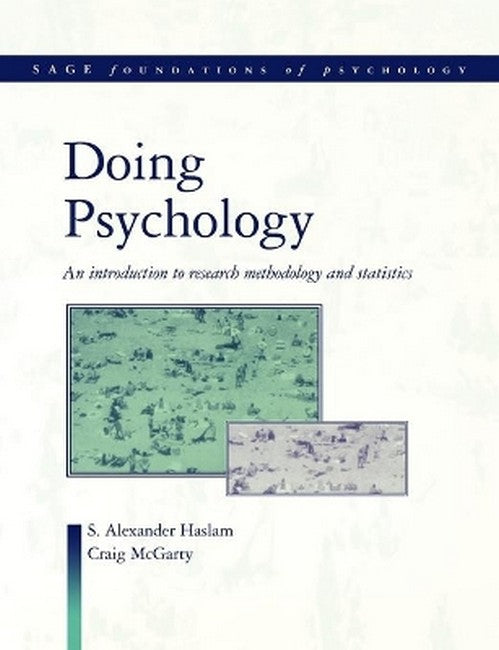S. Alexander Haslam is a professor in the School of Psychology at the University of Queensland, Australia. Craig McGarty is a social psychologist whose main work is on intergroup relations especiallly social identity, collective action, group-based emotions and stereotype formation. He worked for 16 years at ANU where he was Head of the School of Psychology before moving to Murdoch University in 2007 to become Director of the Centre for Social and Community Research and then to become Director for the Social Research Institute. He moved back to Canberra in 2012 but continues to work 100% for Murdoch University.
Request Academic Copy
Please copy the ISBN for submitting review copy form
Description
Introduction Research in Psychology Objectives and Ideals Research Methods Experimental Design Survey Design Descriptive Statistics Some Principles of Statistical Inference Examining Differences between Means The t-test Examining Relationships between Variables Correlation Research Ethics Conclusion Managing Uncertainty in Psychological Research The chapters in detail Chapter One: Introduction `Why do I have to do this?'; the structure of this book and an overview of the chapters; how to use this book Chapter Two: Research in Psychology: Objectives and Ideals What is psychological research and why do it?; how does psychological research progress?; principles of good research; some notes of caution Chapter Three: Research Methods Psychological measurement; the experimental method; the quasi-experimental method; the survey method; the case study method; overview Chapter Four: Experimental Design Choosing an independent variable; choosing a dependent variable; choosing an experimental sample; threats to internal validity; threats to external validity Chapter Five: Survey Design The differences between surveys and experiments; setting the question; finding a sample; types of survey; overview: designing a survey Chapter Six: Descriptive Statistics Different forms of research data; describing a typical score: measures of central tendency; the relationship between measures of central tendency and a response distribution; describing the spread of scores: measures of dispersion; observed distributions Chapter Seven: Some Principles of Statistical Inference Statistical inference; inferences about individual scores; inferences about means; overview Chapter Eight: Examining Differences between Means: The t-test Student's t-distribution; comparing the results for a single sample to a specific value; within-subjects t-tests; between-subjects t-tests; the controversy about what to do with t-values; handling the results of t-te Chapter Nine: Examining Relationships between Variables: Correlation Some basic principles of correlation; the measurement of correlation; interpreting and making inferences about correlations; some notes of caution; conclusion Chapter Ten: Research Ethics Science and society; participation in research; research with animals; final comment Chapter Eleven: Conclusion: Managing Uncertainty in Psychological Research `Where has all this got us?'; managing uncertainty in psychological research; final comment Appendices: Step-by-step guides to computing t-tests and correlations; statistical tables ?
`Doing Psychology is a sound text with clear and accurate explanations in areas which it covers' - South African Journal of Psychology `Doing Psychology ... challenges the reader to become active in the development and understanding of psychological research and to be critical in its application. Academics will find the text would easily complement the structure of an introductory course. Overall this book is written clearly and concisely, adopting a conversational tone, and utilises a structure that students can easily follow without the techniques and concepts being oversimplified. Doing Psychology is certainly a text well worth considering in introductory courses, or as a refresher text for those who need to revise key techniques. The text would provide students with a good foundation for advanced design and statistics courses' - Australian Psychologist

